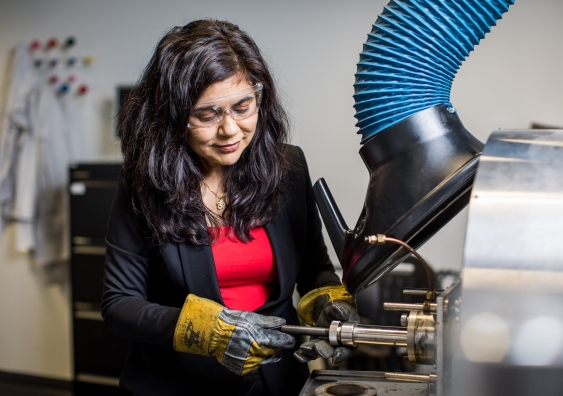
A new $1.5m network designed to drive waste innovation in NSW will be headed by an expert who is pioneering technology which will help councils convert old clothing into building materials.
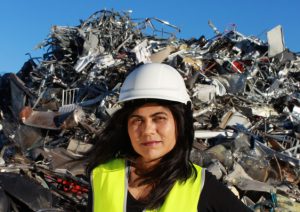
The Circular Economy Innovation Network, announced on Monday by the State Government on the back of a survey finding widespread public support for waste recycling initiatives, will link industry experts with governments to explore innovative ways to tackle the waste crisis.
The network, which will be established by UNSW, will be headed by Veena Sahajwalla from the Centre for Sustainable Materials Research & Technology (SMaRT), who is developing technology to convert glass, clothing and electronic waste into building products and other materials.
Professor Sahajwalla was this week showcasing her pioneering waste conversion technology to regional councils, with workshops on tackling the waste crisis in the outer regions of NSW.
Regional councils like Dubbo and Orange have a key role to play in leading the way in innovative waste management, Professor Sahajwalla says, making them “well suited” to explore these innovative technologies.
“We need to start to unlock the value embedded in these discarded waste resources, which can bring new revenue sources into our economies, rather than burying our used materials after a single use. Microrecycling can achieve all this by creating ongoing value from waste products,” she said.
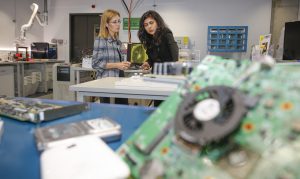
It’s hoped that innovative technologies like Professor Sahajwalla’s will drive down the 20 million tonnes of waste that ends up in Australian landfills each year.
The news comes after a survey from UNSW released in October found that 91.7 per cent of Australians believe it is important for the nation to invest in technology to reform common waste into reusable materials.
The survey also found that most people, across all Australian states, believe recyclables put in their council bins are going to landfill, and that 72.4 per cent of people would recycle more if the material was reliably recycled.
NSW Chief Scientist & Engineer Professor Hugh Durrant-Whyte said the network, which was a recommendations of a recent NSW Innovation and Productivity Council Report, is essential to help drive innovation in waste management in NSW to curb the waste crisis.
“A circular economy looks to minimise waste while ensuring that the valuable resources contained in waste and other discarded products are kept in use for as long as possible,” he said.
“Maximising the use and value of these resources will bring major economic and environmental benefits to NSW.”
Innovation in recycling and the use of renewable resources is essential to promote a shift towards more sustainable supply chains in governments, Professor Sahajwalla says.
“The new NSW Circular Economy Innovation Network is crucial to start to bring together all of the relevant stakeholders, including small to medium enterprises, into a new supply chain that can create value from these discarded materials, rather than for them to end up in landfill or valueless somewhere,” she said.
Comment below to have your say on this story.
If you have a news story or tip-off, get in touch at editorial@governmentnews.com.au.
Sign up to the Government News newsletter.
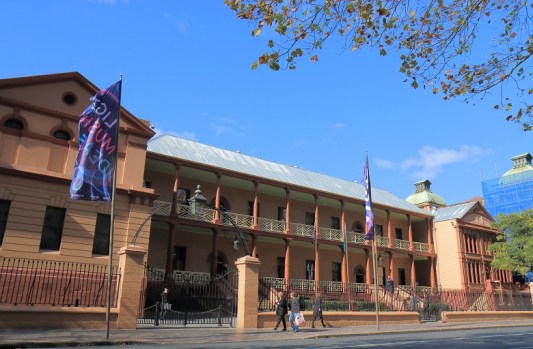
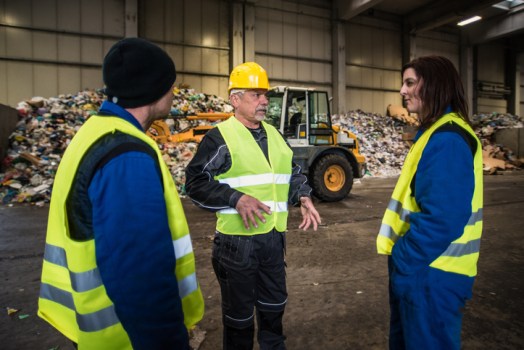
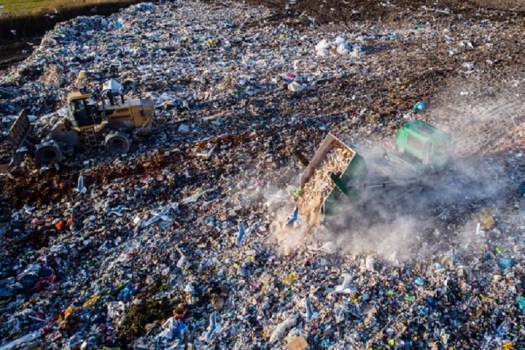
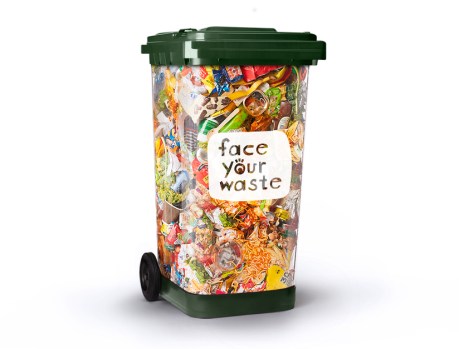
One of the major headaches for regional councils is the disposal of tyres.
I have suggested on several occasions to the local council that the tyres could be repurposed in so many useful and cost-saving ways. They could be used to make kerbing, street landscaping, retaining walls, fences, children’s play equipment, robust fencing and windbreaks. They could be used on tops of dams to minimise evaporation with the aid of flotation devices. Or my favorite, which I believe could bring tourists into town, a giant tyre maze or labyrinth right in the heart of the state that people would go out of their way to visit and admire.
Many small towns in the Central West have no back-up industries to agriculture. They rely 100% on farming revenue to survive. Now anyone will tell you that it is extremely dangerous to put one’s eggs in a single basket – better to share the risk. And recycling plants based in these outback towns would be a great way of doing just that. Jobs would be created where there were none before. I wrote the the local MP about this matter ages ago and suggested that the Government subsidise the building of specialist recycling plants in these dying towns and then contract them out. He replied that recycling was none of the Government’s business and I should take my ideas elsewhere. But I believe the Government must get on board if we are to tackle this growing problem. And I believe that ‘specialist’ recycling plants are the way to go. An example of a specialist recycling plant would be for an aluminum can recycling plant, to be strategically placed near the new scandium mine at Fifield. Scandium is used with aluminum to create an extra strong, yet lightweight alloy used the the manufacture of electric cars, fast trains, aircraft, etc. So, why not position an aluminum can recycling plant right next-door to where the action is? Jobs would be created where there were none, thus saving a small town from dying out. Other ‘specialist’ recycling plants could be for plastic, glass and paper products, again each based in these small country towns crying out for some sort of industry to keep them alive. But the Government needs to be the one to take the initial risk to get the ball rolling.
Don’t wait for the Government. Get in touch with a local High School with say an electric pottery kiln, properly instrumented, and get some Design & Technology teachers interested
in doing a series of waste conversion projects. They will know how to get support from local industries for their work & yours. Try crowdfunding if necessary. But talk to the teachers. That’s what I’m going to try over here when I learn enough to start.
Good on you. Don’t give up.
Mike
I’m an old engineer and age pensioner in Perth, WA and I would love to have Prof. Veena Sahajwalla’s technology at work over here to make our local plastics etc. into useful, valuable resources and restore our manufacturing industry. This is revolutionary technology. I want to build a micro-factory as a pilot plant to interest local investors and users in using all our resources.
How can I help make this happen? I believe maybe an electric pottery kiln could serve as a basis for such a plant. The possibilities are practically endless.